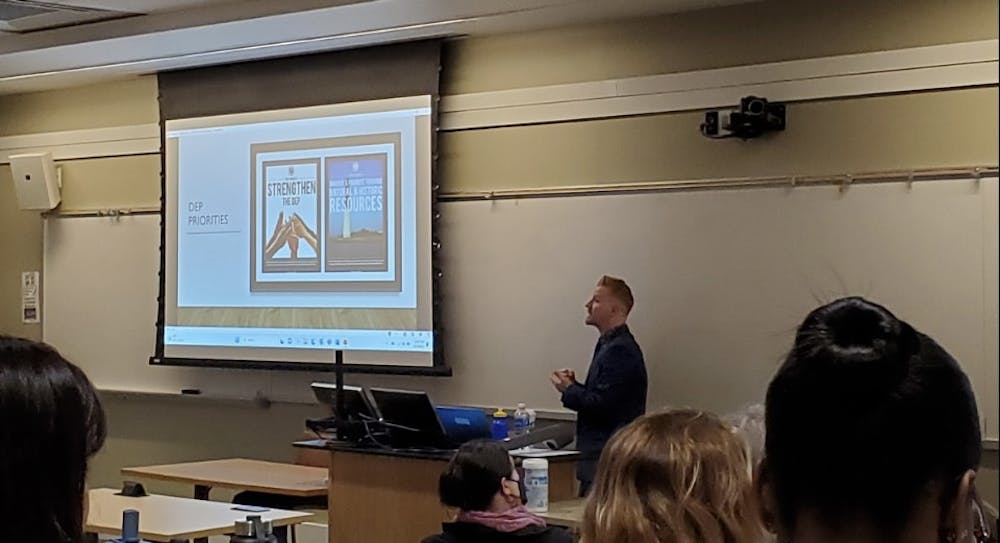By Catherine Gonzalez
Staff Writer
On March 24, the College hosted Shawn M. LaTourette, the New Jersey State Commissioner for the Department of Environmental Protection (DEP), as part of their Politics Forum Series for an event entitled "How Environmental Policy Can Promote Climate Resilience & Racial Justice.”
As a lawyer for over 20 years, LaTourette advocated for environmental justice in many ways before beginning his work with the DEP, such as by defending those with toxic water in their living area. He was appointed to his current role by Governor Phil Murphy on June 14, 2021 and has shaped environmental law and policy in the state ever since.
Among the issues that LaTourette and the DEP are working to resolve is the expected increase in sea level within roughly the next 30-80 years, rendering many lands uninhabitable.
“We have a very legitimate chance of seeing a two-foot rise in sea level by 2050, and a five-foot rise in sea level by 2100,” LaTourette said. “There’s a 17% chance that this’ll be worse.”
LaTourette continues by sharing that building constructions two feet higher than they are currently built in midland areas and five feet higher in coastal areas can combat this chance. However, enough people feel tentative about supporting environmental organizations that enacting this plan becomes unlikely.
LaTourette observes that this tentativeness often comes from people’s misconceptions about environmental organizations.
“People believe that the DEP is meant to protect the trees because they’re pretty, but baked into that is a really fundamental value for serving people because it’s only by ensuring that we don’t over-pollute our air and contaminate our water that we ensure that people are safe,” LaTourette said. “We do, too, protect the environment because natural beauty should be preserved, but that is not our primary goal.”
Similarly, people have misconceptions about how to solve environmental issues as well, especially in correlation with economics.
“People have long seen having a sound economy versus having environmental protection as a dichotomy. However, this perceived conflict has always been false,” LaTourette said. “While we would be spending more money on the front-end to resolve these issues, we would save more money later because we would not need to keep rebuilding things.”
Students took strongly to LaTourette’s strategy for discussing environmental issues with people.
“People are not really open to the idea of climate change and it actually being an issue in our society because they associate it with taking away gas or fossil fuels, so [LaTourette’s] ability to approach it differently with each person that he encounters is very important,” said freshman political science major Priscilla Atuahene.
Students also liked hearing about the future of environmental policy in New Jersey.
“As college students, we're going out into the real-world knowing that flooding’s such an issue, rainfall (especially how we've seen that that's such an issue first-hand, as well), so one of my biggest take-aways was seeing the steps that our own government is taking,” said Ashley Castellanos, a freshman political science major.
LaTourette encourages students interested in pursuing a career in environmental advocacy to begin getting involved now.
“Ask questions, attend events and introduce yourselves,” LaTourette said. “I have done a lot of work, and none has been more interesting, compelling and rewarding than working at the DEP.”







